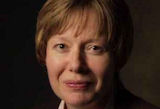 A few years ago, I mused on Frank Wells’ observation that he’d never come across a female research fraudster. But now the RIKEN Institute in Japan has found Haruko Obokata guilty of misconduct for manipulating stem cell images, and this isn’t an isolated case.
A few years ago, I mused on Frank Wells’ observation that he’d never come across a female research fraudster. But now the RIKEN Institute in Japan has found Haruko Obokata guilty of misconduct for manipulating stem cell images, and this isn’t an isolated case.
A quick look at the US Office of Research Integrity’s (ORI) website shows that two out of the three most recent misconduct findings are against women. Helen Freeman, of Harvard Medical School, is accused of falsifying figures in a Nature article about gene regulation in neurodegenerative diseases. While Melanie Cokonis, a laboratory technician at the Southern Research Institute, falsified data in a National Institutes of Health report on antiviral compounds.
I have neither the data nor the statistical skills to know whether women might still be under-represented in the world of scientific fraud, but I am now convinced that the earlier observation no longer holds. We can’t say that fraud is an exclusively male domain. It would be fascinating to know if the gender balance has shifted, but probably not worth the considerable efforts it would take to know for sure. But that shouldn’t stop us from looking at the causes of misconduct and the factors that might reduce it.
One big problem with such research is the secrecy that often surrounds misconduct hearings. Although federally funded US health research is publicly scrutinised by the ORI, which publishes its findings, elsewhere it’s much harder to find out what’s going on.
One welcome proposal of the UK concordat to support research integrity was that employers of researchers should publish an annual statement on any formal investigations they have undertaken. Better still, the concordat called on funders and institutions to work together to produce “an annual narrative statement on research integrity.” But, so far as I know, this has yet to happen, although the concordat was launched in 2012. So I plan to start agitating for this, instead of wondering whether women are really becoming more dishonest—that’s the kind of equality I can do without.
Liz Wager PhD is a freelance medical writer, editor, and trainer. She was the chair of the Committee on Publication Ethics (COPE) (2009-2012).
Competing interests: The author has no further relevant interests to declare.
